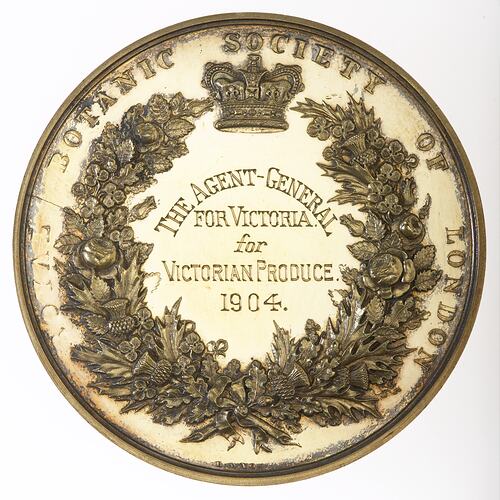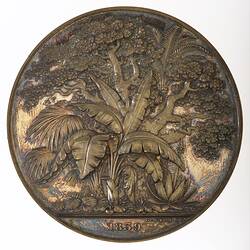John William Taverner was born in Melbourne in 1853 and educated at Scots Grammar School, Williamstown. At the age of 11 he moved with his family to Kerang, where he began work cutting thistles for five shillings per day. He then held a surveyor's chain for seven shillings per day. He later drove a coach for Cobb & Co and kept a hotel. In 1879 he married Elizabeth Ann Bassett Luxton.
From 1882 to 1896 Taverner was the senior partner in two firms, then the principal of a limited liability company of stock and station agents at Kerang. At Swan Hill he became involved in local government. He was president of the shire council from 1881 to 1883, Justice of the Peace in 1882 and held other local offices including president of the Kerang branch of the Australian Natives' Association. In 1889 he entered the Legislative Assembly as member for Donald and Swan Hill, and soon made his mark as a spokesperson for Mallee settlers. From 1894 to 1899 he was vice-president of the Board of Land and Works, commissioner for public works and minister for agriculture in George Turner's government. He was also president of the Royal Commission for the Greater Britain Exhibition of 1899 and represented Victoria for the duration of the Exhibition. In the same year he wrote a well-received paper on Phylloxera, the insect that damages grape vines (Victoria, 1899, No. 68).
Turner's second ministry was disrupted by Taverner, who led a 'country' faction to intrigue with opposition groups. Taverner's political courage did not disadvantage his career, and he became commissioner, vice-president and finally, president of the Board of Land and Works; commissioner for crown lands and survey; and minister for agriculture in the Irvine government. He helped to draw up land regulations to assist the Mallee settlers. Taverner hoped to succeed Irvine as premier, but Thomas Bent had more influence and won the position. Taverner was appointed agent-general for Victoria in London instead.
He was no sooner in London when charges were brought against him that he had used his office as minister for agriculture for personal benefit. A Royal Commission cleared him on most charges, except that he was found to have exerted improper influence to gain preferment. Bent took no action (himself the subject of suspicion about improper activities), and Taverner remained in London, where in 1904 he was awarded a medal in 1904 by the Royal Botanic Society of London for Victorian produce (NU 18371). He was knighted in 1909 and continued in his post until 1913. He finally returned to Australia in 1922 and became a member of the State Fruit Advisory Board and chair of the Victoria directorate of the Primary Producers' Bank.
On 17 December 1923, while attending the opening of a bank branch in Doncaster, he spoke a few words and suddenly collapsed and died. He was 70 years old.
References:
Australian Dictionary of Biography website http://adbonline.anu.edu.au/adbonline.htm
1911 Encyclopaedia http://17.1911encyclopedia.org/P/PH/PHYLLOXERA.htm, accessed 14 Jan 2004.
More Information
-
Keywords
-
Localities
Kerang, Victoria, Australia, Swan Hill, Victoria, Australia, London, England, United Kingdom
-
Authors
-
Article types

